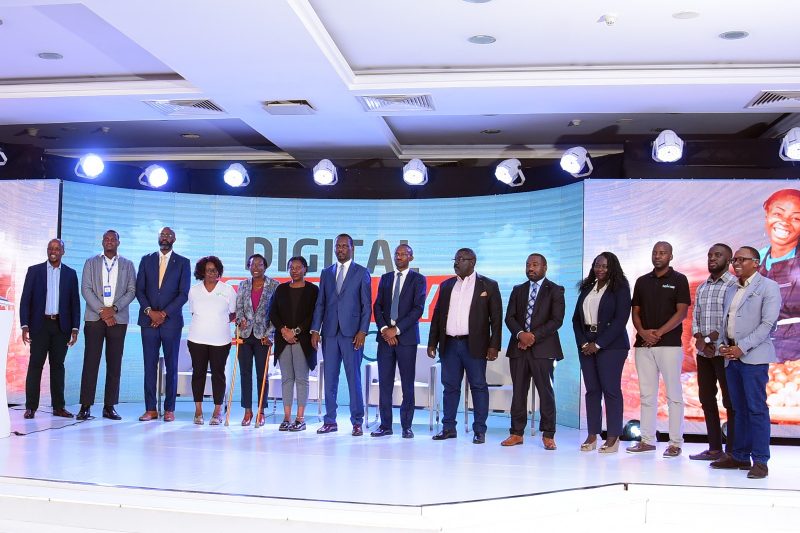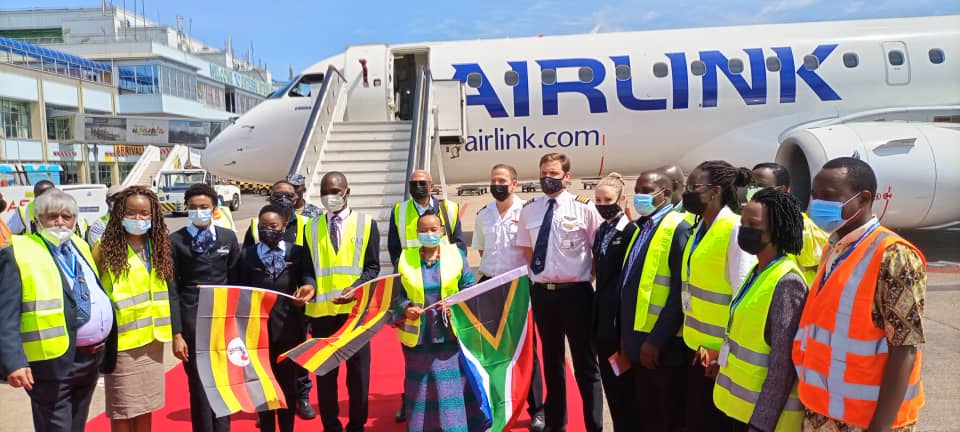The National Planning Authority’s Deputy Executive, Charles Olweny Ojok, has advised technology entrepreneurs and organizations to embrace shared digital platforms, which were demonstrated on March 1st, 2023, at the Serena Hotel in Kampala. To support young farmers, the platforms bring together a variety of service providers, ranging from input suppliers to insurance firms to financial service providers.

“Using shared digital platforms will facilitate end-user access to products and services, resulting in lower operational costs and increased revenues for entrepreneurs and service providers. The shared platforms will make it easier to reach last-mile users in rural communities, who have been digitally excluded for a long time “, he explained.
The showcase event is part of the Digital Economy Initiative that Innovation Village is executing in conjunction with the Mastercard Foundation. The plan aims to improve access to key services, products, markets, funding, and jobs for 3.4 million Ugandans living in remote locations.
Ojok emphasised that the Digital Economy Initiative is in line with the Government of Uganda’s commitment to achieving universal goals of inclusion, sustainable development, economic advancement, and poverty eradication through digital transformation. “Advancing the digitization agenda is critical to achieving economic recovery, creating jobs for young people, and realising Vision 2040,” he continued.

Beginning with agriculture in 2022, the Digital Economy Program has made significant progress by studying the needs of 370 farmer producer organisations with 650,000 farmers, 250,000 of whom are young farmers, understanding which value chains they play in and the attendant challenges they face, and providing a foundation on which to support innovators developing market-driven technology-enabled solutions. According to the study report, most farmer organisations needed more digital tools and skills and encountered difficulties accessing dependable markets, financial services, and inputs, among other things.
Based on these findings, the Digital Economy Program has devised interventions for farmers, including marketing, financial literacy, business planning, and record keeping, in collaboration with partners such as the Uganda National Farmers Federation. The initiative will also train entrepreneurs to design and implement solutions that bring together multiple service providers to provide youth, women, smallholder farmers, small business owners, and others with inexpensive, seamless, technology-enabled services.
Through the programme, Innovation Village has collaborated with technology providers such as Hamwe East Africa, as well as channel partners such as the Association of Microfinance Institutions of Uganda and the Grain Council of Uganda, to design and implement these interventions, as well as to assist innovators in developing and scaling appropriate solutions.
In light of these results, the Digital Economy Program, in collaboration with partners such as the Uganda National Farmers Federation, has produced interventions for farmers such as marketing, financial literacy, business planning, and record keeping. The initiative will also train entrepreneurs to design and implement solutions that bring together diverse service providers to provide inexpensive, seamless, technology-enabled services to youth, women, smallholder farmers, small business owners, and others.
Through the programme, Innovation Village has collaborated with technology providers such as Hamwe East Africa and channel partners such as the Association of Microfinance Institutions of Uganda and the Grain Council of Uganda to design and implement these interventions, as well as to support innovators in developing and scaling appropriate solutions.

Overall, the Digital Economy Program helps people who are developing and growing technology-enabled solutions in agriculture, education, or to strengthen the resilience of micro, small, and medium enterprises to do so more efficiently, sustainably, and quickly. The initiative assists solution providers in developing, testing, and refining high-impact sustainable solutions, identifying more efficient and cost-effective ways to serve end users, and more successfully bringing solutions to market.
According to Adrian Bukenya, Country Director, MasterCard Foundation, Uganda, the digital economy has the potential to increase farmers’ access to markets, financial services, inputs, and farming knowledge.
“Although digital entrepreneurs have created several solutions, farmers in rural areas have not accessed them because of poor digital literacy and limited access to the internet and devices. This Program is leveraging shared digital platform services to enable entrepreneurs to scale their solutions to farmers that were previously excluded from the digital economy because of lack of connectivity and devices,” he said.
Mr. Bukenya went on to say that the Digital Economy Program is part of the Mastercard Foundation’s Young Africa Works Plan, which aims to provide dignified and satisfying work to 4.3 million Ugandan youth by 2030.
The Innovation Village’s Team Lead, Japheth Kawanguzi, stated that the Innovation Village would collaborate with various partners to widen and champion the national digital transformation agenda and accelerate the creation of job possibilities for young people. Partnerships will be essential if the plan is to satisfy the different requirements of communities,” he says.
The Ugandan government has made significant investments in vital infrastructure, such as the National Fibre Optic Backbone, National Data Centre, and enabling laws, and the country must now double down on speeding digital transformation to reap the full advantages of these investments. According to the 2021 Inclusive Digital Economy Score Card, Uganda is now scored at around 39% in research and innovation, meaning that the government has to double its efforts to drive digital transformation on these fronts.
The World Bank’s Digital Solutions in a Time of Crisis Report (World Bank, 2021) stressed the importance of digital technology in opening up new pathways for rapid economic growth, innovation, job creation, and access to services for disadvantaged people. The report claims that digital solutions
The programme is presently onboarding partners who have existing technology-enabled solutions that include an Android app or who have the technical, product, and associated capabilities to grow such solutions. To make the most of the Partner Program, such solutions should have at least 20,000 active end customers.
About Guide2Uganda
Guide2Uganda (www.guide2uganda.ug) is the most comprehensive source of travel information about Uganda on the web, with more content on its cities and towns, accommodations, attractions, events, museums, and galleries than any other online guide currently available for Uganda, as well as being a dynamic travel news and events driven site with new content added on a daily basis.
We are one of Uganda’s most powerful online media organizations, according to the WeFollow & Peer Index, which assesses online influence. Jumia Travel Uganda also awarded Guide2Uganda the “Best Destination Website in Uganda” at the 2018 Africa Travel Awards.
Share your travel stories & photos with the world via email: info@guide2uganda.ug




